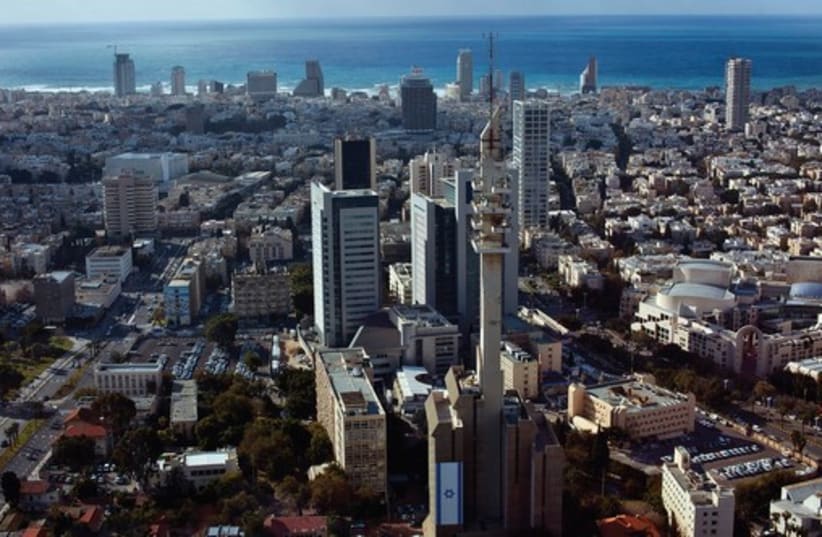Similarly, internet users worldwide took to social media and announced that they were either removing their own listing from the apartment rental platform or ceasing to use the service to rent assets all over the world."Sorry @Airbnb. You've lost me as a customer over your discriminatory, racist & Antisemitic policy with #Israeli boycott! Shame on you!" executive director of the Israeli-Jewish Congress in Israel and human rights lawyer Arsen Ostrovsky wrote.Airbnb blacklists Jewish apartments in Judea and Samaria - not Palestinian apartments, not apartments in Turkish occupied Cyprus, in Moroccan occupied Sahara, not in Tibet or the Crimea. Airbnb’s policy is the very definition of anti-Semitism. No one should use its services.
— Michael Oren (@DrMichaelOren) November 19, 2018
Author and Executive Editor of the political journalism website Washington Examiner Philip Klein wrote that it was "Time to boycott @Airbnb - I don’t do business with companies that blatantly descriminate against Jews."Sorry @Airbnb. You've lost me as a customer over your discriminatory, racist & Antisemitic policy with #Israeli boycott! Shame on you!https://t.co/qXwY0o7qHL
— Arsen Ostrovsky (@Ostrov_A) November 19, 2018
"Buh-bye @Airbnb! And to think I was about to start managing apartments through them. Call it what you want but when you boycott Jewish business - and only Jewish business - it's #antisemitism," writer and speaker Laura Ben-David wrote on Twitter.Time to boycott @Airbnb — I don’t do business with companies that blatantly descriminate against Jews. https://t.co/38807FWz5W
— Philip Klein (@philipaklein) November 20, 2018
Host of Host: Breitbart News Tonight, writer and lawyer Joel Pollak wrote: "Just deactivated my @Airbnb account. The answer to absurd boycotts of Israel is to boycott the boycotters. Many of the areas affected will be part of Israel in any peace deal. I’d rather pay more in a hotel than subsidize antisemitism or support Palestinian terror. #BoycottAirbnbBuh-bye @Airbnb! And to think I was about to start managing apartments through them. Call it what you want but when you boycott Jewish business - and only Jewish business - it's #antisemitism. pic.twitter.com/T98rMmkvqg
— Laura Ben-David (@LauraBenDavd) November 19, 2018
In response to Pollak, columnist and editor Bethany Mandel commented that "I'm doing the same @airbnb. We got a lovely condo in Hawaii a few years ago on your site, and we need apartments now that we travel with kids, but there are other players out there."Just deactivated my @Airbnb account. The answer to absurd boycotts of Israel is to boycott the boycotters. Many of the areas affected will be part of Israel in any peace deal. I’d rather pay more in a hotel than subsidize antisemitism or support Palestinian terror. #BoycottAirbnb
— Joel B. Pollak (@joelpollak) November 19, 2018
Conservative commentator Dan Bongino wrote: "Unreal. No @Airbnb for me. Read this," pointing to an article previously posted by prominent conservative political commentator and writer Ben Shapiro which calls Airbnb's decision "antisemitic."I'm doing the same @airbnb. We got a lovely condo in Hawaii a few years ago on your site, and we need apartments now that we travel with kids, but there are other players out there. https://t.co/gGqtxBMXM7
— Bethany S. Mandel (@bethanyshondark) November 20, 2018
Speaking at a press conference on Tuesday, Israeli Tourism Minister Yariv Levin called the boycott "racist" and "discriminating." "We are going to restrict the ability of Airbnb to work here. If you have a policy of discrimination against Israelis, you cannot earn money here in Israel. We'll probably put a very high tax here in Israel on the activity of Airbnb," he elaborated.BDS groups celebrated the move. “Another BDS [Boycott, Divestment and Sanctions] win!” multiple pro-Palestinian groups jubilantly claimed on social media.Airbnb agreed to boycott West Bank settlements and announced plans Monday to remove settler listings from its popular website of temporary rentals in 191 countries.The platform posted a notice about the policy change on its website, explaining that at issue were some 200 listings. It noted that it had wrestled with the pros and cons of the situation before coming to a decision.“There are conflicting views regarding whether companies should be doing business in the occupied territories, which are the subject of historical disputes between Israelis and Palestinians,” the company said.“We spent considerable time speaking to various experts, including those who have criticized our previous approach, about this matter. As a global platform operating in 191 countries and regions and more than 81,000 cities, we must consider the impact we have and act responsibly."The company also explained that it had developed a case-by-case framework that it planned to follow in situations of territorial dispute, which included consideration of whether the listing of such properties contributed to “existing human suffering” and had a “direct connection to the larger dispute in the region.”Tovah Lazaroff contributed to this report.Unreal. No @Airbnb for me. Read this https://t.co/UkQMSF0KxL
— Dan Bongino (@dbongino) November 19, 2018
